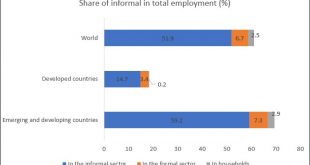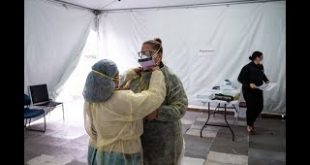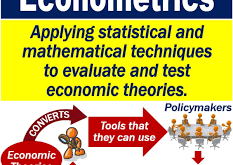from Maria Alejandra Madi The United States declared an economic war on China in early 2018. Economic warfare is a unilateral action that questions the existence of multilateralism and places the question of what regime we are about to enter after the weakening of the existing multilateral trade agencies. US trade policy opens the door for new relationships between emerging market economies and international financial institutions on issues of liberalisation but mostly it ends a period...
Read More »Informal workers in the time of Coronavirus
from C. P. Chandrasekhar and Jayati Ghosh The global devastation caused by Covid-19 is only just beginning, with the severe threat to public health worsened by the evident inability to cope of most health systems across developing and developed countries. Many states across the world appear to have realised the serious potential of this pandemic and have declared lockdowns, closures, partial curfews and curtailment of all but essential activities in efforts to contain the contagion. The...
Read More »Country by country coronavirus case trajectories graph – 25/03, 19:00 GMT
Day by Day
Provided to YouTube by TuneCore Day by Day · Eliot Dean Baker Day by Day ℗ 2020 Orange Aura Records Released on: 2020-03-23 Auto-generated by YouTube.
Read More »What Is In Congress’ $2 T Coronavirus Stimulus Bills?
Sonali Kolhatkar speaks with Dean Baker, the senior economist at the Center for Economic and Policy Research, Baker also is the co-founder. He is the author of several books, including Rigged: How Globalization and the Rules of the Modern Economy Were Structured to Make the Rich Richer. His blog, Beat the Press, provides commentary on economic reporting. His analyses have appeared in many major publications, including The Atlantic Monthly, the Washington Post, the London Financial Times,...
Read More »Our “Scheidel Moment”?
from Peter Radford We are all familiar with what a “Minsky Moment” is. Or we should be given the disaster of the Great Recession. Whilst it’s true that economics has bumbled along pretty much unaltered since this dark years of just over a decade ago, and, yes, I am aware of the rumblings around the discipline’s edges, others have taken a bash at looking at facts. One of those people is Walter Scheidel who has given us a much needed historical context for our discussion about inequality....
Read More »Coronavirus deaths by country – March 24, 19:00 GMT
A million Corona tests a day. In the short run.
The news is as bad as it can be. Our most dependable indicator, people dying from Corona, suggest an exponential rate of growth of over 10%. Per day. Actually: 14%. In a little over 2 weeks, 20.000 people will die. At least. Per day. If we do nothing. The news is as good as it can be. High biotech companies are developing fast track tests at an unbelievable rate while the government offices which (rightly) have to approve these are working around the clock to do this. Korea will soon...
Read More »Econometric testing
from Lars Syll Debating econometrics and its short-comings yours truly often gets the response from econometricians that “ok, maybe econometrics isn’t perfect, but you have to admit that it is a great technique for empirical testing of economic hypotheses.” But is econometrics — really — such a great testing instrument? Econometrics is supposed to be able to test economic theories but to serve as a testing device you have to make many assumptions, many of which themselves cannot be tested...
Read More » Real-World Economics Review
Real-World Economics Review




